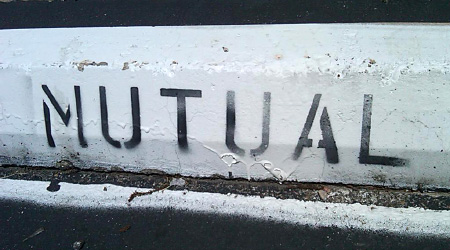How To Buy A Mutual Fund

Mutual funds are publicly traded investments in which any individual investor is allowed to purchase shares. Before jumping into a mutual fund, it is important to first outline your investment objectives and retirement goals. There certain requirements to invest in mutual funds which include a minimum initial investment, deciding where the mutual fund will be held, and possible tax implications. Once you consider all the possible factors and have gathered together funds you will be ready to buy shares in a mutual fund.
Step #1
Mutual funds are considered long-term investments because they grow at a moderate rate and often have a low level of risk. A good time horizon for buying mutual fund shares is 10 to 20 years or more. Use mutual fund recommendations and screeners found online and in financial magazines to help you make a decision on which mutual fund to purchase shares in. Select a mutual fund category you like and with a rating and annual returns you're comfortable with.
Step #2
When researching mutual funds be sure to review the provided prospectus outlining the mutual funds goals and objectives. It is required by law that mutual fund companies fully disclose all associated expenses, objectives, investments and historic performance to potential investors. This allows consumers to make informed decisions and fully understand the costs and risks involved.
Step #3
There are a few different ways to buy a mutual fund depending on your current investment accounts. Some investors will select a mutual fund from their IRA or 401(k) accounts to benefit from the tax status. You can also purchase shares in a mutual fund from a traditional or online broker where you may have existing investment accounts. Finally, some investors will contact and purchase directly from a mutual fund company and cut out the middleman altogether.
Step #4
After an account is established it will need to be funded to begin purchasing shares. If it is an IRA or 401(k) account then shares will be purchased every paycheck when contributions are made. If you're going through a broker you can deposit a check for the minimum amount, usually $1,000 to $2,000, to fund the account. Mutual funds bought directly from a company either have a minimum requirement or can have automatic monthly deposit withdrawn from a bank account for $25 to $50.
Step #5
At this point, funds have been deposited or will continue to be deposited monthly and shares will be purchased in the mutual fund you selected. Once you are buying into a mutual fund you will receive monthly account statements which will outline the transactions made and for what prices. Monitor your statements to make sure shares are purchased correctly and track performance over time.
Summary
Once you know how to buy a mutual fund you will see how easy it is and hopefully increase your exposure to other various investments. It is actually a simple process but if you have any questions be sure to consult with a financial advisor or investment professional to understand the costs and risks involved with buying mutual funds.






